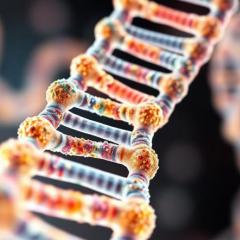 Two researchers from the University of Queensland Diamantina Institute, Dr Pascal Duijf and Dr Michelle Hill, have recently been awarded grants from the National Breast Cancer Foundation (NBCF) commencing January 2014.
Two researchers from the University of Queensland Diamantina Institute, Dr Pascal Duijf and Dr Michelle Hill, have recently been awarded grants from the National Breast Cancer Foundation (NBCF) commencing January 2014.
Dr Pascal Duijf joined the Diamantina Institute in January 2013 looking for a position that would allow him to grow into a more independent researcher following a seven year stint at Memorial Sloan-Kettering Cancer Center in New York. Receiving this prestigious Early Career Fellowship from the NBCF will enable him to expand his research into chromosome instability, one of the most malignant features of breast cancer cells.
Chromosome instability, the phenomenon whereby cells gain and lose chromosomes during cell division, can not only cause cancer and accelerate cancer progression but also enables tumour cells to become resistant to treatment.
Dr Duijf intends to uncover how increased levels of certain proteins cause chromosome instability in breast cancer. He will also look at how chromosome instability provides unique opportunities to enhance diagnosis. This is expected to improve personalised patient treatment and may lead to the development of new therapies to treat cancer.
Dr Michelle Hill’s move to the Diamantina Institute from the Institute of Molecular Bioscience in 2009 was motivated by her desire to focus on translational research. The recent Novel Concept Grant from the NBCF aims to use a new technology to develop a blood test for the early detection of breast cancer spread, ultimately translating to more personalised cancer medicine for patients.
While localised cancers can be surgically removed, cancers that have spread to other organs require drug treatment. Cancer spread (metastasis) is difficult to detect by imaging techniques because of the broad potential organ distribution and small initial size.
Dr Hill’s research aims to identify blood markers that can be used to diagnose patients with metastatic breast cancer. By comparing the levels of certain proteins in blood samples collected from patients with metastatic or non-metastatic breast cancer, this project will find a list of metastasis-associated blood proteins that could be used to diagnose those with advanced disease.
The development of a blood test to detect metastasis early will not only improve the diagnosis and prognosis of patients with breast cancer, but also patients with other forms of cancer.
MEDIA: Kate Templeman on 0409 916 801 or k.templeman@uq.edu.au



